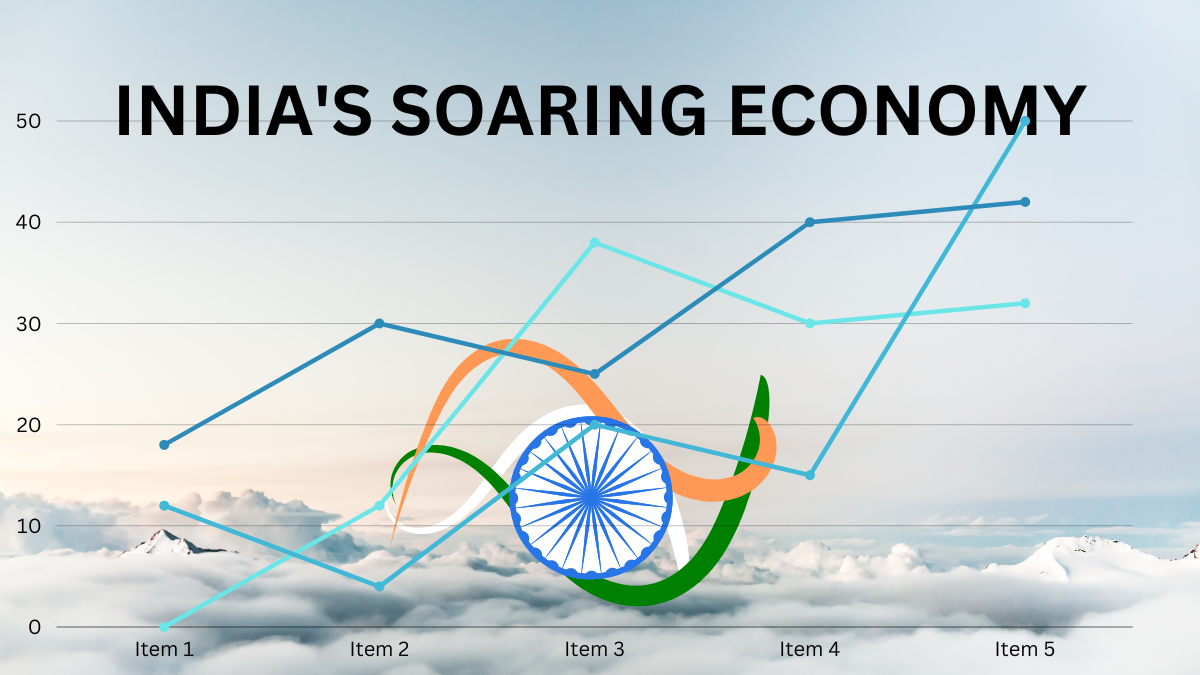On Tuesday, as India commemorated 77 years of independence from British control, Prime Minister Narendra Modi prophesied that the country’s economy would be among the top three in the world within five years. In an address to the nation as a whole from New Delhi’s Red Fort, which dates back to the Mughal Empire in the 17th century, Modi wore a flowing, multicolored turban and claimed that the government he was leading had helped more than 130 million people escape poverty and that India’s increasing prosperity presented a chance for the rest of the globe.
“The middle class’s power grows considerably when poverty declines in a nation,” he remarked. “I pledge that India will rank amongst the top three businesses in the world throughout the next five years.” Accompanying reports from S&P Global and Morgan Stanley from the year before predicting that India’s economic output would surpass those of Japan and Germany to become the third largest in the world by 2030, the person giving the speech made the following declaration:
Offshoring, investment in manufacturing, expanding digital infrastructure, and the energy transition, according to them, will be the main drivers of India’s economic expansion. The United Kingdom’s economy surpassed India’s $3.5 trillion economy last year, which propelled it up to fifth place. The 100th anniversary of India’s independence will be commemorated in 2047 as a developed country, as stated by Modi, who emphasized his confidence in this. India is projected to expand by 6–6.5% during the current financial year, in accordance with projections from the government, thereby becoming one of the world’s strongest economies with the fastest pace of growth.
Nevertheless, despite the consistent expansion of the economy, the Modi administration has struggled to allay worries concerning unemployment and is under pressure to create enough jobs, particularly as it prepares for a general election in 2024 that Modi’s Hindu nationalist Bharatiya Janata Party is expected to win. The Central Bureau of Statistics for Monitoring the Indian Economy estimates that the jobless rate increased over the past year and reached 8% last month.
In his speech, Modi avoided addressing these issues and instead praised the advancement of India over the years. He highlighted that, according to some predictions, India was now the world’s most populated country and added, “We are lucky to have demography, democracy, and diversity.” The most recent census taken by the Indian government was in 2011, and no official population statistics have yet been made available. After the COVID-19 epidemic, a new world order, according to Modi, was beginning to take shape.
He emphasised India’s ascent on the international scene. The voice of the global South is increasingly coming from India. We are giving the promise of stability to the world,” he commented, noting that the G-20 Summit would be held in New Delhi, India, next month and that all eyes would be on India.
The northeastern state of Manipur, where a near-civil conflict has raged for months and devastated more than 150 lives, has also received additional requests for peace from the prime minister. He asserted that peace remains the only way to find a solution and that the nation stands with the inhabitants of Manipur. Manipur citizens have protested against the state administration, which is governed by Modi’s party, and demanded the removal of its chief minister ever since fighting between two prominent ethnic groups broke out in early May.
In spite of a significant army presence, violence in the state has caused more than 50,000 people to flee. Armed crowds have set buildings on fire, assassinated innocent people, and looted weaponry from state armories. The Manipur war nevertheless received little consideration from the strongman commander for three months. A no-confidence motion against his government was brought up in Parliament as a result of his involvement—or lack thereof.
Last week, after making the first peace plea in Manipur since the violence started, Modi defeated the motion. A day after its neighbour Pakistan, India commemorates its independence. British India was bloodily divided in 1947, leading to the creation of two distinct states. The procedure led to some of the most horrific intercommunal conflicts the world has ever seen, which culminated in hundreds of thousands of fatalities. Around 12 million people fled their homes as a consequence of this, making it one of the biggest human migrations in history.
